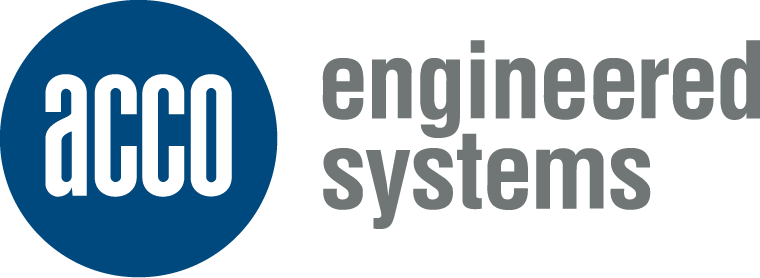In the ever-evolving landscape of mechanical contracting, the fabrication shop is the beating heart of successful mechanical contractors. As the prefabricated pipe and metal market becomes increasingly competitive, mechanical contractors find themselves at the forefront of innovation, seeking ways to expand capabilities and improve profit margins. Learn valuable tips for enhancing your mechanical fabrication shop operation to not just survive, but thrive in today’s dynamic environment.
Automate Machinery for Efficiency:
The integration of automated machinery is a game-changer for mechanical contractors aiming to boost productivity and reduce staffing costs. By introducing computerized machines into the fabrication shop, pipe profiling, and hangar fabrication processes can be streamlined, offering a cost-effective and efficient solution. The benefits are manifold, ranging from increased speed and accuracy to ensuring that every component meets the highest quality standards.
Implementation Tips:
- Conduct a thorough assessment of repetitive processes suitable for automation.
- Invest in automated machinery that aligns with the specific needs of your fabrication shop.
- Consider automated pipe profiling, welding, and other tasks to maximize efficiency.
Outcomes:
- Reduced labor costs.
- Minimized errors associated with manual labor.
- Streamlined manufacturing processes, leading to significant time and cost savings.
Revamp Workflows for Optimization:
In the highly competitive business environment of mechanical contracting, workflow optimization is crucial. Revamping workflows involves:
- A comprehensive analysis of the entire design-to-fabrication process.
- The flow through different work areas in the fabrication shop.
- The identification of assemblies suitable for prefabrication.
Successful implementation requires a multi-disciplinary approach, integrating technological advancements, operational data analysis, and strategic planning.
Strategies:
- Focus on optimizing the design-to-fabrication workflow.
- Evaluate the progression through different work areas in the fabrication shop.
- Identify opportunities for prefabrication to enhance efficiency.
Cultural Shift:
- Promote a culture of open communication and foster continuous improvement across your organization.
- Encourage employees to participate actively in the optimization process.
Benefits:
- Substantial cost savings.
- Superior product quality.
- Proactive adaptation to changing market conditions.
Integrate Design with Fabrication:
Efficiency is paramount in a fabrication shop, and one key strategy is to improve the collaboration between design and fabrication teams. Integrating these teams allows for a reduction in project turnaround time and minimizes specification errors. Moreover, this collaboration positions the fabrication shop to offer complete solutions to clients, attracting more work and fostering a reputation of reliability and innovation.
Collaboration Strategies:
- Ensure effective communication between design and fabrication teams.
- Encourage joint problem-solving sessions to address potential challenges.
- Foster a culture of cross-disciplinary collaboration within the organization.
Competitive Edge:
- Streamlined production processes.
- Reduction in project turnaround time.
- Enhanced client satisfaction through comprehensive solutions.
Invest in Resource Tracking Solutions:
Adopting resource-tracking solutions in a rapidly evolving technological landscape provides a significant competitive edge for mechanical contractors. Implementing cutting-edge technology that allows real-time tracking of resources offers critical insights into operations, leading to more accurate job costing and improved project management.
Technological Investment:
- Explore and invest in state-of-the-art resource-tracking solutions such as MSUITE.
- Seek seamless integration with existing systems and processes.
Importance of Accuracy:
- Address minor errors that accumulate over time, impacting profitability.
- Optimize workflows and resource management for better overall efficiency.
Strategic Positioning:
- Understand the costs associated with each job for informed decision-making.
- Position the fabrication shop for success in a dynamic marketplace.
Utilize Advanced Robotics & Automation:
Incorporating advanced robotics and automation into fabrication processes is imperative as technology evolves. This not only increases accuracy, speed, and efficiency but also allows for the handling of more complex and precise designs. Investing in and utilizing this technology ensures market competitiveness and attracts skilled workers seeking experience with cutting-edge automated systems.
Technology Adoption:
- Explore the latest advancements in robotics and automation.
- Invest in training programs to familiarize staff with the new technology.
Attracting Skilled Workers:
- Leverage advanced technology as a selling point for attracting skilled labor.
- Enhance the overall skill set of the workforce through exposure to automated systems.
Competitive Advantage:
- Increased production efficiency.
- Quicker turnaround times.
- Ability to handle complex designs with precision.
Scaling Work for Your Mechanical Fabrication Shop
Moving more work into the fabrication shop is a strategic and crucial step in expanding the business and improving overall efficiency. This beginner’s guide provides a roadmap for making this transition smoothly.
Essential Transition:
- Acknowledge the importance of moving more work to the fabrication shop.
- Recognize the benefits of centralized operations for efficiency and cost-effectiveness.
Streamlining Process:
- Focus on streamlining a single process or standard assembly initially.
- Minimize disruptions by starting with a manageable transition.
Evaluation:
- Assess current processes to identify time-consuming or error-prone areas.
- Prioritize areas that offer the most significant potential for improvement.
Optimized Process:
- Work collaboratively with the team to develop and implement optimized processes.
- Ensure consistency in applying the new processes throughout the fabrication shop.
Foundational Improvements:
- Consider this transition as a foundation for ongoing operational enhancements.
- Monitor and evaluate the impact of changes, adapting as needed for continuous improvement.
Mechanical contractors face various challenges in the industry. These challenges come from the complex nature of automated systems, the competitive business environment, and the need to adapt to evolving technologies and regulations. The industry is witnessing technological advancements, such as Building Information Modeling (BIM), advanced fabrication shop management software, and automation. Integrating these innovative technologies into optimal workflows and adequately training employees (even the pessimistic) can help lift your business.
Mechanical contractors ready to enhance fabrication shop operations need a holistic approach that combines technological innovation, efficient workflows, collaborative teamwork, and strategic decision-making. By implementing these tips, mechanical contractors can adapt to the industry’s challenges and position themselves as leaders in a competitive market, driving long-term success and growth.







